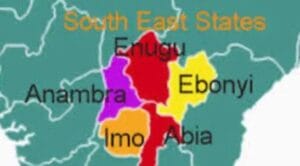Kingdom of the Planet of the Apes Sequel and Franchise Expansion
The latest Kingdom of the Planet of the Apes sequel sets the stage to continue the journey of Noa (played by Owen Teague) and Mae (played by Freya Allan), taking Caesar’s (Andy Serkis) legacy further and expanding the overall Planet of the Apes timeline. The film occurs generations after Caesar’s tragic end, following Noa as he encounters challenges that make him question all he once believed. The end of Kingdom of the Planet of the Apes left Noa and Mae making pivotal choices that might shape the future for both apes and humans—a storyline that will be explored in the upcoming sequel.
The release of Kingdom of the Planet of the Apes was eagerly awaited, and although it garnered an 86% rating on Rotten Tomatoes, it fell short of the high standards set by Caesar’s trilogy. Caesar, as a strong and beloved character, set a difficult bar for follow-up characters. However, the upcoming sequel hints at following a franchise tradition that contributed to the success of Caesar’s storyline. This tradition might enhance the quality of Kingdom of the Planet of the Apes, aiming for the same positive reception as Caesar’s movies.
Kingdom Sequel Set for 2027: Following the Franchise’s Three-Year Release Cycle
Three-Year Gap Tradition in Planet of the Apes Sequels
The 2027 release date for the Kingdom of the Planet of the Apes sequel keeps the franchise’s tradition of a three-year gap between films. During Caesar’s trilogy, each installment followed this pattern, with Dawn of the Planet of the Apes released three years after Rise of the Planet of the Apes in 2011, and War for the Planet of the Apes debuting three years after Dawn.
This release strategy allows the production team to refine the cinematography and the crucial motion-capture technology that bring these characters to life. By taking their time, the filmmakers ensure these visual aspects are perfected, which is essential to maintaining the movie’s quality and audience immersion. Rushed production could harm the viewing experience and impact the franchise’s reputation, so this three-year spacing supports both cinematic depth and high-quality storytelling.
The Impact of Delayed Sequels on the Planet of the Apes Franchise
Why Planet of the Apes Succeeded by Avoiding Quick Sequels
This gradual approach has worked well for Planet of the Apes because it avoids the temptation to rush a new release just to capitalize on the previous movie’s success. Each installment had time to develop a more sophisticated storyline, enhancing the overall franchise. By delaying each release by three years, the sequels consistently met and even surpassed expectations, adding depth to the plot and allowing audiences to connect with each new chapter. Shorter gaps could risk lowering the quality and box office performance, something the franchise has skillfully avoided.
his strategy has produced positive results for the franchise:
| Planet of the Apes Movies | Release Year | Worldwide Box Office | Rotten Tomatoes Score |
| Rise of the Planet of the Apes | 2011 | $481 million | 82% |
| Dawn of the Planet of the Apes | 2014 | $710.6million | 91% |
| War for the Planet of the Apes | 2017 | ₦490.7million | 94% |
| Kingdom of the Planet of the Apes | 2024 | 397.4 million | 80% |
The consistent release gaps allowed Caesar’s trilogy to develop impressive cinematography, enhanced CGI, and richer character arcs. These elements are vital in a complex series like Planet of the Apes, where visuals and characters drive the story. Each film’s refined quality captivated audiences, making each release an eagerly awaited event. The sequels’ gradual improvement helped make the storyline easy to follow, while the stronger character portrayals deepened the fans’ connection with the franchise.
Box Office Performance and the Kingdom Sequel’s Opportunity
While Kingdom of the Planet of the Apes didn’t perform as well at the box office compared to its predecessors, the franchise’s adherence to the three-year release strategy means the sequel can improve upon the foundation laid in Kingdom. The 2027 sequel provides an opportunity for even more developed CGI, character growth, and refined storytelling, which could make for a more captivating and successful installment.

